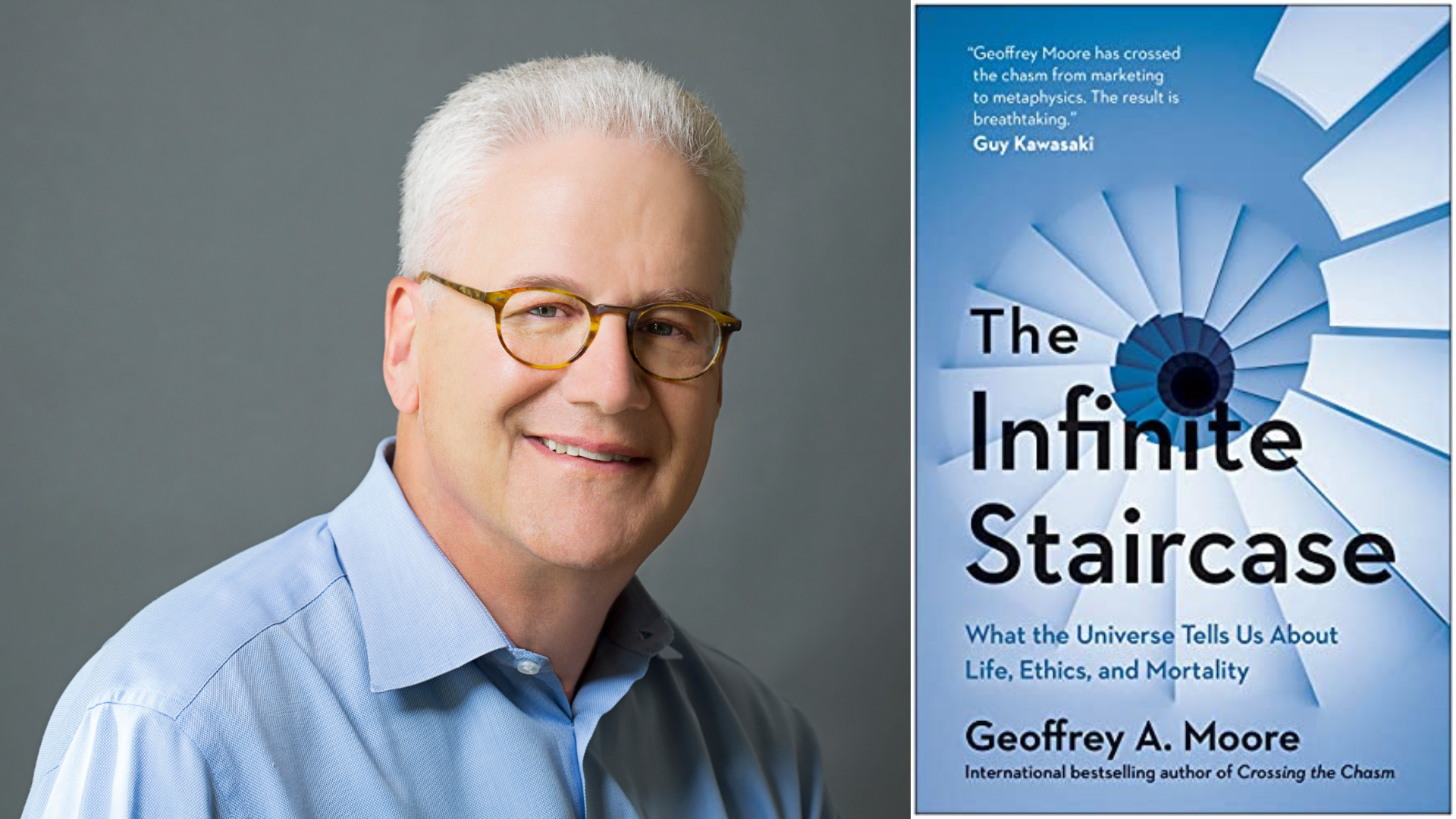A leap forward in AI ethics and safety
July 5, 2024

In a departure from his tech-strategy roots, Geoffrey Moore tackles the grand questions of human existence in his new book, “The Infinite Staircase: What the Universe Tells Us About Life, Ethics, and Mortality.” Using an interdisciplinary approach, Moore builds a metaphorical ladder from the Big Bang to daily ethical decisions. Today, we sit down with him to explore this intellectual odyssey and its implications for our secular age. Stay tuned.
Hi Geoffrey, so why did you write this book… now?
For all my adult life I have embraced a worldview based on secular metaphysics (the Big Bang, evolution, etc.) while at the same time sought to live in accordance with values based on Christian ethics. The nagging question for me was always, if there is no God, what authorizes those ethics? I did not want to abandon them, but I also did not want to abandon the secular narrative of how the universe came to be. So, this book was my attempt to reconcile the two.
An extract from your book that best represents yourself?
“Assuming no crises of health or welfare, it is perhaps somewhere between the ages of 50 and 60 that being mortal starts to become an interesting option. We realize now that the game we are playing has entered the second half. There is still plenty of time on the clock, but there is no longer an infinite horizon. This is a time to get serious, to take stock of who we are and where we are going, to double down on the things we care about most, to begin to extract ourselves from the things that are holding us back. We are now, in all likelihood, as capable as we have ever been or are ever going to be, so our focus should be on how to put our power in service to whatever we honor most. Embracing being mortal at this stage simply means we are no longer willing to waste large swaths of our time.”
The trends that are just emerging and that you believe in the most?
My work is focused almost exclusively on the adoption of technology to release trapped value, whatever may be holding it captive. The trends around artificial intelligence and molecular biology, fueled by ever-increasing computing power, both have enormous range of application when it comes to pools of trapped value they can release. These are secular developments that have deep ethical implications, and that is the intersection I am paying the most attention to.
If you had to give one piece of advice to a reader of this article, what would it be?
Be asymmetrical in the way you allocate your time and energy. For most things, doing what is expected is your best bet, but for something, maybe just one thing, going crazily beyond what is expected lets you have an outsized impact. It should be something you love, something you are good at or at least are willing to work super hard to become good at. Most importantly, you should block out time for it first and then fit your other commitments around it. A lot of times we do just the opposite, and we get so caught up in ATOS (All The Other Stuff) that we never get around to realizing our best self.
In a nutshell, what are the next topics that you will be passionate about?
I will continue to explore the interplay of metaphysics and ethics with a view toward finding practical ways to cope with life’s confusing challenges.
Thank you Geoffrey Moore
Thanks Bertrand
The book: The Infinite Staircase, Geoffrey Moore, BenBella Books, 2021